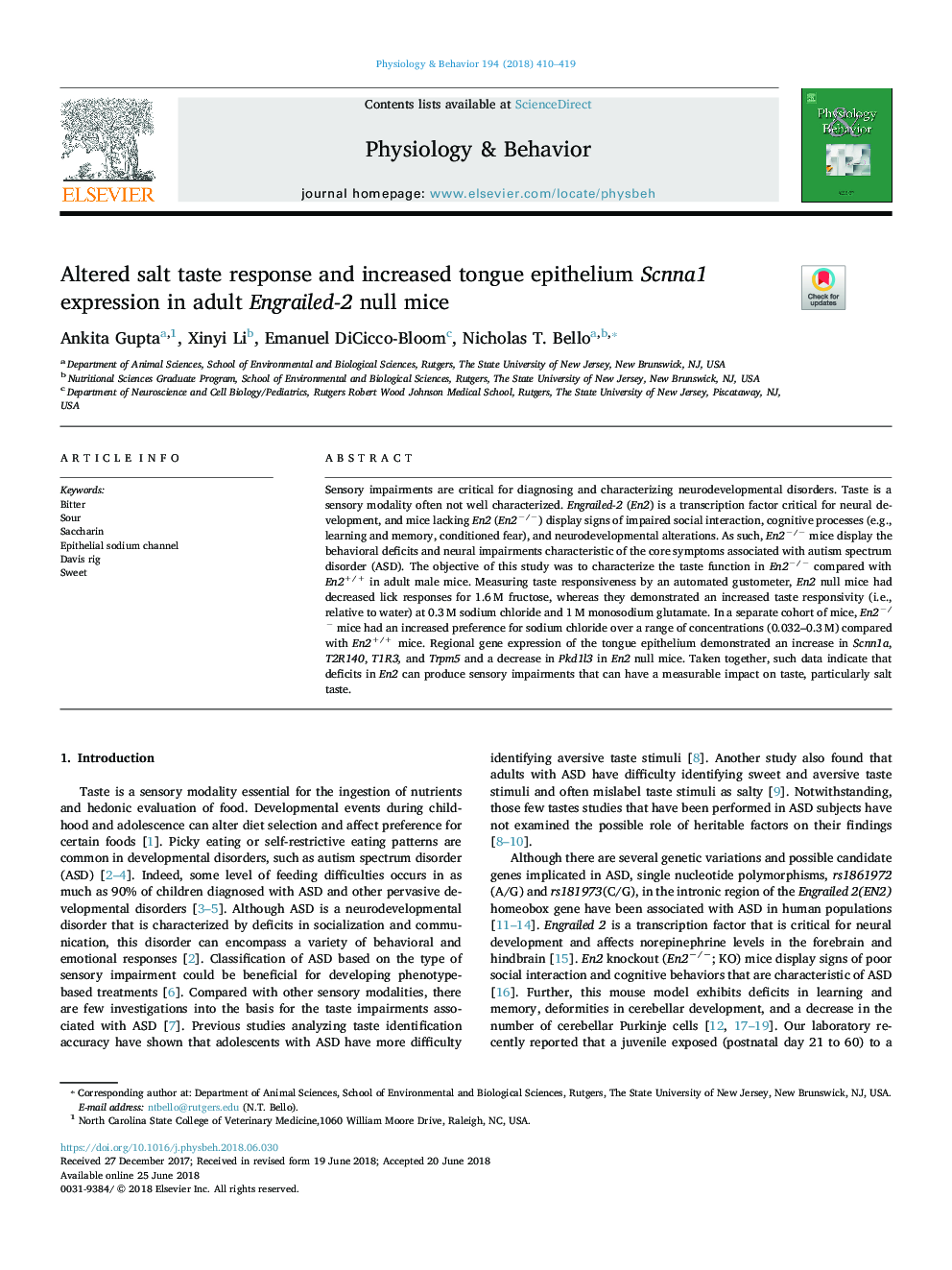| Article ID | Journal | Published Year | Pages | File Type |
|---|---|---|---|---|
| 8650314 | Physiology & Behavior | 2018 | 10 Pages |
Abstract
Sensory impairments are critical for diagnosing and characterizing neurodevelopmental disorders. Taste is a sensory modality often not well characterized. Engrailed-2 (En2) is a transcription factor critical for neural development, and mice lacking En2 (En2â/â) display signs of impaired social interaction, cognitive processes (e.g., learning and memory, conditioned fear), and neurodevelopmental alterations. As such, En2â/â mice display the behavioral deficits and neural impairments characteristic of the core symptoms associated with autism spectrum disorder (ASD). The objective of this study was to characterize the taste function in En2â/â compared with En2+/+ in adult male mice. Measuring taste responsiveness by an automated gustometer, En2 null mice had decreased lick responses for 1.6â¯M fructose, whereas they demonstrated an increased taste responsivity (i.e., relative to water) at 0.3â¯M sodium chloride and 1â¯M monosodium glutamate. In a separate cohort of mice, En2â/â mice had an increased preference for sodium chloride over a range of concentrations (0.032-0.3â¯M) compared with En2+/+ mice. Regional gene expression of the tongue epithelium demonstrated an increase in Scnn1a, T2R140, T1R3, and Trpm5 and a decrease in Pkd1l3 in En2 null mice. Taken together, such data indicate that deficits in En2 can produce sensory impairments that can have a measurable impact on taste, particularly salt taste.
Related Topics
Life Sciences
Biochemistry, Genetics and Molecular Biology
Physiology
Authors
Ankita Gupta, Xinyi Li, Emanuel DiCicco-Bloom, Nicholas T. Bello,
